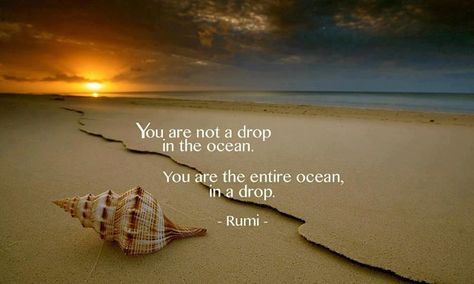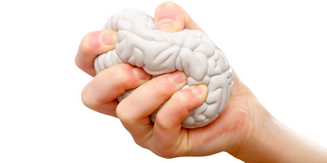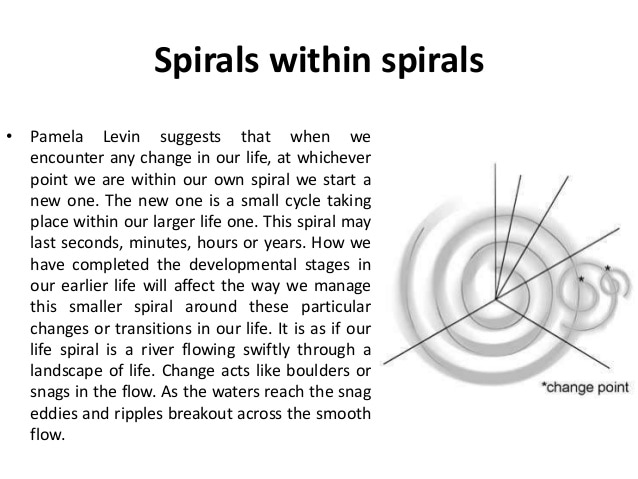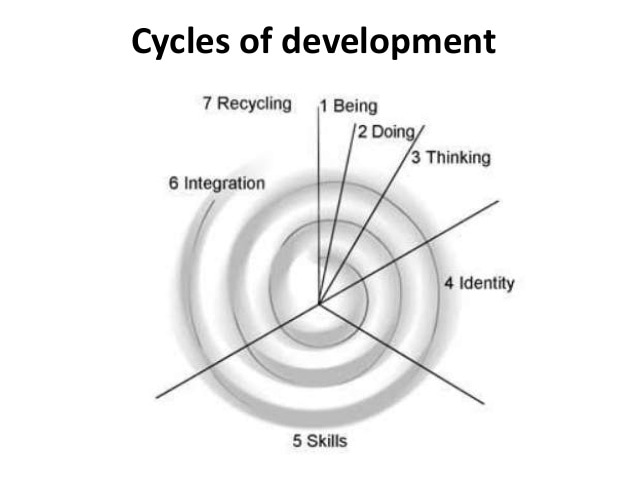DripplesDripples (drops n' ripples) attempts to invite a relook at our current definitions, at what we know and don't know, of our selves, at health and of life itself, and perhaps have a perspective that is new.
|
|
This writeup is a followup to the below-linked post.  It follows the evolutionary line of thought that human beings are yet in the making; that the term human being has prematurely come about and that we, as a species, are still evolving into becoming human beings. A human being is what only a human being can do - pause, identify which is what, deflect the attack into something harmless without risking life and that which is honorable in any way and at the same time restoring harmony (any animal can attack/defend. A human being sustains and subsists what need to be sustained and subsisted over and beyond a mere attack/defend existence). A human being is in the mindful harmonious deliberations with peace at heart and altruism in conduct, creating sustainable worlds. When you create something new and original and wholesome, you are awakening the human in you, else you are just a replica (any machine can replicate sooner or later). When you are aware, that is a human feature (machines are largely automatons being trained on what to be aware of). A human being responds to a need and compares only to make things better (comparing to survive is an animal need - it helps to survive as the fittest, which is animal nature; over and beyond this animal nature is 'human' who can live - constantly evolving from living in the moment creating worlds that has not been yet that works for everybody while recycling that which does not sustain and subsist). Movement with an answer to 'why the movement' as a purpose is a human feature (an interesting animal nature of a peculiar kind of animal, perhaps a Bat, is to simply want to know the unknown just because it is there in the not-known; a human would employ the findings into creating things that works for everybody, not just as 'I can do this too' but by also being mindful of the consequences/outcomes from the 'doing.' A human being is responsible for his/her/their actions by being accountable for the consequences). The mind waves between our different shores of knowledge, imbibing and depositing from each other, enriching life and the experience of living in the Ocean of Consciousness that we are all part of. As a human being, as a product of millions of years of evolution, it is our onus to behave as the privilege that is in being human beings and be on the Planet as part of the Whole. Violence is animal nature; peace is human nature. Violence is part of the attack/defense survival loop to exist. A violence is an attack or intrusion without permission, and permission is denied because the enterer does not meet criteria/not qualified to enter, and hence the defense against violence. It is animal nature to win merely to survive and human to live (create win-win outcomes that work for all that is life and living, not merely for the individual/group/community/country). We can identify our animal nature by comparing and contrasting with the animal we behave like and then to identify when we behave as humans and then to learn to continue to be humans with Nature to guide us on how to live amongst the living and then further how to live as a human being amongst fellow human beings. I think a human being is the walker in between the visible and invisible, between the known and unknown, respecting both, working with both, creating in conjunction with both - in conjunction with All That There Is (in conjunction with the Universe). A human being is always in tension - InTension; he/she/they are beings in tension, standing on a firm conviction in life and what is wholesome and drawn to an invisible destination even if just in faith of its existence and walks to cover the distance between what is and what could be in a way that works for everybody-everything. Poornamadah poornamidam poornaath poornamudachyathe, poornasya poornamaadhaayah poornamevaa vashishyathe (There is whole, here is whole, from whole arises whole, From/being whole, with whole as the basis (relied upon), whole ever subsists/remains) (Sanskrit is an ancient language with layers of meanings in each of its words, so translating it becomes a challenge but the translation above is a good enough approximation, I suppose) The Vedas delineated thusly a law cosmologically for anything created to subsist and then further for the created to create subsisting/lasting (read, that which stands the test of time) creations in the scheme of All That There Is that we call the Universe (a singular Whole with several whole parts working together towards a greater whole). Addendum: (29-Nov-17) Ancient Egypt has left a message for all future generations to see this evolutionary need: The Sphinx (<-- Click here). I would paraphrase the words 'God' and 'Divine' in more palpable, reachable, doable terms since we seem to have made 'God' to be either a feared or unreachable ideal too vague hence to be connected with directly by us as individuals other than through somebody who intervenes or interprets for us, but more on that later. I do say here (in this update on this date) that what the Sphinx points to is a developmental delay in our psychoemotointellectuospiritual evolution while the physical body is apparently that of a human. I say apparently here because we are yet to see our ideal body constitution as a Human Being, as in perfection as a human being. A lot of 'alien' movies and books keeps talking about the human race being a primitive race which, in light of the above paragraph, makes sense! More later.
0 Comments
Kindly indulge me as I attempt to presence a perspective that may be unusual or even out-of-the-box from everyday thinking.
There is a University that each one of us get admission into the moment we are born. It is a teaching school and each student learns a subject according to what they have a studentship about. Studentship is whatever it is about that there is a genuine 'I really dont know but I am inquiring into it'ship about the topic of inquiry. This University has all kinds of courses imaginable, and the learning is practical on-the-court/job in-reality; basically, if you are born, you are in the University. I dont know if anyone really gets out of it (a la Hotel California, with several other chambers in it than the song depicts). It has standards/grades (like the first standard/grade, second standard/grade, etc. of primary schooling and degree courses too and placements according to the level of training in Almighty.Inc that is in sync with the University). As the standard/grade in school levels up, there is a shift is how reality is perceived and in the understanding of what reality is, much like viewing through a kaleidoscope. So, when there is a perceived shift in reality, you should know you have probably leveled up/moved to the next standard with a whole lot of new teachings to layer upon what has already been learned. We all actually know about both. I attempt here to present the already known but maybe in the subconscious/unconscious minds so that the conscious mind can make choices with this knowledge; afterall, knowledge gives confidence. Attendance is based on choice. How soon you learn a subject depends on how much time you spend learning it. As you learn one standard/grade, you level up until degree and advanced courses depending on how much you want to learn. Placement appropriately, again depending on choice of job available, but sometimes also based on requirement, again depending on level of skill and jobability (i.e., ability to deliver the requirement). The jobability depends on what a person can do, and the 'doing' needs to be consistent with what Almight.Inc is producing as a Company. it is a construction company and like any company it requires softskilled and hardskilled employees. Again, placement is according to skill. Everyone who is in the University is also an employee one way or the other in Almighty.Inc. Promotions are based on performance and there is always scope for promotions. Pretty organic a Company this. All the people around a person are basically colleagues, hence, which is over and above what the person's relationship with the colleague is. Some are aware of their employeeship, some are not. This writeup is also an attempt to remember/remind/bring to awareness what may be in the subconscious/unconscious. We are not on Earth for nothing; each one matters, so be gainfully employed. It is quite a perfect system, this Company. Bad seeds get weeded out. No one is indispensable; jobability depends on who can do the job and jobability is constantly evaluated. It is quite a hotseat that way literally. It is the line of fire. So, a person can check their job status by checking in with their conscience. If they can face their conscience and stand undaunted, they have their performance evaluation in realtime - quite an effective management that way. Karma is basically what you do; performance appraisal according to Karma (past wrongs can be righted by present doings). Payment is in terms of goodwill, money, companionship, teaching, performance appraisal-based promotion. It helps to do anything keeping one's conscience as a constant companion; that is real-time performance self-appraisal. Helps to be a good student, calibrate/maintain karmic balance, skill-upgradability, etc. Every effort counts. Be aware of your choices as acutely as possible. There are ways to develop awareness, of course, by which choices can be caught as they are being made consciously/subconsciously/unconsciously. Checking in with one's conscience is akin to checking in with the Management of University AND Almighty.Inc, much like checking in with the high command. You are judged based on Karma (what you do; even thinking is a doing for it has energy by which something happens whether a person knows it or not about what happens), so be conscious about how you spend your time. Now, about the University - only a student continually enrolled in the University can do the job properly, else there is a chance of being burned in the line of fire if the concern is only about jobability. A fulltime student is likely to be a good employee since such a person is in continuous training. The teaching in the University is in real time. How do you know what course you are enrolled in? Just become aware of what is coming to you - the energy, the thought content, the tone of voice and conduct, the people who interact with you and what transpires, the billboards that catch your attention, the books that interest you or material that you read - they are all part of how the course is delivered. As you become aware of what you learn, you can choose what you want to learn and the University modulates the teaching accordingly so that the learning material is more streamlined to your subject of interest. The challenges faced are a bit like resistence-training or popup exams to test your learning and to assess where tweaking is needed. You can self-assess of course by your faculty of conscience and make adjustments to how you learn and what you learn by the inherent tool of choice. Awareness is key and what there is to be aware of comes by observation and exposure to unfamiliar {you need to be slightly at the edge of what you know and look out from the boundaries at what you may not know for starters; really good for stretching the muscles :) } Happy learning, dear World citizen! (Will update content of this post as and when further clarity is deemed necessary/beneficial and/or as I learn my lessons better in the University).  I modify Rumi's words to "You are a glass of water from the Ocean AND you are the entire ocean in a glass of water." (You are just as much a tiny drop in the whole scheme of things as much as You are not JUST a drop. I say 'glass of water' because we have physical/material bodies whose nature is basically crystalline.) Wholesomeness us SUCH a beautiful word. The Vedas say, Poornamadah poornamidam poornaath poornamudachyathe, poornasya poornamaadhaayah poornamevaa vashishyathe (There is whole, here is whole, from whole arises whole, From/being whole, with whole as the basis (relied upon), whole ever subsists/remains) (Sanskrit is an ancient language with layers of meanings in each of its words, so translating it becomes a challenge but the translation above is a good enough approximation, I suppose) The Vedas delineated thusly a law cosmologically for anything created to subsist and then further for the created to create subsisting/lasting (read, that which stands the test of time) creations in the scheme of things. We are creations too of the Universe (born to a mother and father and part of some community/geography whether we like it or not) and so part and parcel of the Whole (on a Planet that is part of a solar system that is part of the Milky Way that is part of a bigger galaxy and so on). Any dissociation/breakage from wholesomeness (i.e., sum of many many Wholes) is 'trauma.' Who you are and what you create from being in existence depends on the degree of wholesomeness in you. (the subsistence of what you create in time again depends on the degree of wholesomeness by the above cosmological law of creation as delineated by the Vedas). {I say 'you' in the above sentence because the individual - I - when unwholesome, tends to hide conveniently behind the 'we' and not take responsibility in becoming the person that he/she/they can become in bringing into existence what You can bring into existence simply because of not waking up to the fact that there are no two You's!) The following is a list of the big headings under which we could check our relationship with wholesomeness. (Yes, as the image suggests, 'trauma' is like an oppressive force that squeezes our brains and bodies into inability to think clearly or behave appropriately). The more wholesome we get, better is the nature and quality of what we create (bring into existence and maintain) in the world. The nature of the relationship with the items in the following list would indicate health or trauma in that aspect of wholesomeness, or would at least help to gauge the degree of trauma (or degree of deviation from wholesomeness) in us (as an individual or the individual in a community):
- Relationship with God (or energy or force bigger and greater than you/I - the individual) - Relationship with Nature - Relationship with the land/geography/Country - Relationship with parents - Relationship with people/collective (Relationship with extended family other than parents is a separate subheading under this. This can be further subheaded with relationship with a specific person) - Relationship with things (eg. phone, chair, the rock in the garden, a paper, etc. - nonliving things) - Relationship with life - Relationship with Death (and, consequently, with living) - Relationship with ones body - Relationship with oneself - Relationship with purpose How do we know that there may be a dissociation? Personal Journey through life. If you dont have one, there are several levels of trauma already (because Nature is simply ecological; nothing without a purpose exists, especially if it has life, which you and I have because of which we are countable amongst the living). If you already know your Journey and are buffed every now and then, you may be buffed by the above checkable list. Identify the detractor and you know what takes you out of your Journey. (If you don't have a personal journey, just go through the above list and as you work out the 'trauma' in your relationship with the above items, you are more likely than not to come up with at least one good purpose for existence in the fulfilling of which you are amongst the living and then you would have identified your Personal Journey. I will post further in the category called Finding your Path on this Blog site to further delineate/support you in identifying your path.) There would be bumpers every now and then on the Journey, and they are there because sometimes if the necessary tools are not already learnt in maneuvering through the Journey, the Journey simply would need to teach you those tools because these tools would be essential further on too. If you already had it, you would not be delayed because you would simply be using them. What the above list helps in is identifying the already existing unwholesomeness due to which learning the required tools in your Journey becomes/has been difficult. You could keep bumping up against the same challenges until the 'trauma' in this check-list areas are healed and then you can sail smoother. Your Journey would still have what it takes to complete it but the chances of the Journey just being a dream versus a reality increases tremendously. Self-actualization is not really the end of the story; it is the beginning of having 'real'ized a possible and the Journey now is in maintaining the healthy existence of this new New. If it is not already there in the world, your Journey is still in possibility/work-in-progress stage. When we think/perceive a threat or unfriendliness by that whose relationship (with the item in the list) we are examining, something that bound us in a relationship got sour with reactive behaviors that override reason and create avoidant behaviors, and that is 'trauma.' Experts would perhaps argue that Trauma (with a big T) is severe form of breakage from wholesomeness, but some foundation for it could be seen in the less severe versions. 'Trauma' is nevertheless painful, no matter what the degree. It affects ones well-being emotionally, psychologically, spiritually, physically, and affects ones outlook at life and what one thinks is possible and/or does in the lifespan that one does have. How to identify a trauma: I will attempt to help identify trauma with an example from the list above (Relationship with people/collective). The same method can be used to check with other items from the list. Sift through the knowledge content of what you know about the topic. If there is something against which you react/get triggered by (read, lose your equilibrium), you have identified a trauma. If the breakage from wholesomeness is with a person with whom unfriendliness or homogeneity is missing (read, lose your equilibrium or sense of happiness), there is trauma. The reason for the trauma could be a 'trauma' in the other but a reactivity from us (read, lose your equilibrium) is what would tell if at least part of the reason is a 'trauma' in us. Can we BE in the presence of what we assess the nature of relationship with (or of items from the list). If a reactivity in the individual me is identified, there are many ways to heal the trauma, including but not limited to counseling, working with a therapist, healthcare practices, or maybe even sitting with the uncomfortable for a tete-a-tete. Every trauma can be healed. Everything that is broken can be fixed. Every problem has a solution and can be solved if you have the will to find it and solve it. If you don't think so, there is a trauma that is waiting to be healed! If we can not only be in the presence of but also affect an effect that makes things better for the 'other' ('God'/nature/geography/people/self/purpose that we check nature of relationship with), then there is a great amount of health in us (as against trauma). Everything that is broken can be repaired because wholesomeness is always there to be checked and connected with, because we ARE a part of a community/geography/Planet/solar system and so on. We simply are part of a Whole, so any breakage ('trauma') from the connectedness is just a matter of effort and time invested in repairing the breakage from wholesomeness. It simply IS. I am available for support if you or people you care about are facing a difficulty in getting back to Whole or some disconnection persists. My work is getting things back to whole. Part of my work is 'trauma' healing, which basically means putting things back together in the best possible way, in the most organic way possible, and the other part of my work is enabling the Journeyer (whether or not they know their Journey) in getting to be their best possible self, so unless it is Great Health, the work is not done yet, and I am available to support through the entire process in whatsoever manner I can. Seek before you speak.
Words gain meaning in accordance with context. If the meaning as intended by the speaker/writer is not grasped first and if quickly concluded the meaning before understanding the context, lesser and lesser understood is the message in what is spoken/written. Sometimes grasping the context leads to understanding the thread of thought. Yet, it is the words that give the specifics. It is a bit like zooming into the geography of a place using Google satellite view where you get the location of a house (context) but the brass doorknocker and particulars of the person opening the door are specifics not immediately available, and specifics give details that change a lot the meaning and message conveyed. (Maybe that person opening the door was a terrorist that was being attempted to be watched via the satellite. Did the story of the whole zooming-in change now? It is probably the nuances and details around the specific words that is not immediately available in just the over-view/context that changed the story). Under-standing the context and the nuances in the meaning of the word(s) is required before the word or context opens up the world that each come from. Under-standing (as in standing under) a word or context is much like standing in front of a door waiting for it to open. The door may lead to a tiny little room or a full garden/forest or it may be the rabbit hole that led Alice to Wonderland too easy to miss by over-standing (as in standing over) a word or context. The word could be something as dangerous as a little bomb or just a lump of clay but you miss the point by underestimating it, by over-standing it. Meaning, underestimating (over-standing) what a word or context may be would lead to completely missing the point or losing out on a jolly good Alice in Wonderland world of discoveries, or the next big thing on the planet should you have paid attention to that word or context that would trigger that idea in your head that would change everything :). Afterall, where else do we understand something than in our own heads of something that is happening outside our heads. Under-standing is a bit like meditating on the word/idea/concept - a bit like placing that word or idea or context on an imaginary table in our mind and sitting in front of it curiously waiting for it to speak or do something, maybe even regard you back, and tell you in some way about itself. It is much like meeting a new person, ay? We are likely to take a second look at a 'stranger' (as in 'strange' or different-from-what-I-am-used-to-seeing person) but not someone who looks just like oh-so-many-people-seen with maybe very little brush-aside'able difference, unless of course the person shows or does something unexpected! What if the person doesn't do something unexpected. Does that mean the person is not different just because we can't see the difference? Presuming the meaning of that oh!-so-familiar word has us lose out on the world that that word comes from uttered/written by that person. Under-stand before over-stand. The word or context then becomes a step on which to step and get to the next step on your journey. (Hey! I am learning too, so don't judge me if you find me on the road happily over-standing. These words are soo much Alice-in-Wonderland rabbit holes - too easy to miss thinking it is just another word! They say 'you teach/preach what you most want to learn' and this is one of the things I am working on - under-standing - and I am somewhere between the thinking and habiting stage of the, you know, "watch your thoughts they become words, watch your words they become actions, watch your actions they become habits, watch your habits they become character, watch your character it becomes destiny" saying of some wise folks. So, here I am wording my thinking as I learn to action and habit it. Happy learning, fellow-traveller! (You know, "life is like a train journey and we are all fellow-travellers" bit? :) There is a lil one inside of us, actually several lil ones if a person is constantly engaged in doing unfamiliar or new activities - a new lil one is born in our psyche in the process of doing the new activity who finds ways to maneuver through the new activity/inquiry, and each of these new ones, just like children we see around us, grow in their own time depending on how much the activity has been continued to be engaged in and the child grows up to be a fully grown adult adept at that activity. That is how we unconsciously become more skilled if we continuously spend time engaged in an activity of interest, and over time our 'expertise' in these activities join up with our existing expertise and form interesting combinations of skills hitherto far unthinkable, and that is how we become cameleonic (who says that is only a bad trait?!) and able to adapt with changing challenges - the ability, of course, depending on what you have spent time in developing routinely. Inner child?! How do we know there is an 'inner child' within? Butterflies in the stomach, anxiety of any kind that is either always there or comes about at different points of time during the day or at specific instances of experience through life, overwhelm of any kind about anything, 'I don't know what to do' panic, pure innocent glee about anything, 'I feel like I want a cuddle,' 'I wish I had someone to rely on or hold onto,' curiosity (that is a pure lil one trait; people die or get old if curiosity is not a part of their constitution!) - if you have any of these above symptoms, you have a lil one inside you that definitely needs and deserves to be taken care of. Actually, you should be concerned if you don't have one or more of these symptoms because these symptoms are a great sign that you are alive and are playing the game of life. If you don't have any of these above-said symptoms, you should definitely do an unfamiliar activity or take up an activity that you have never done before (updated on 3-June-17: Maybe learn a new language or learn a musical instrument or try growing a plant in a pot or learn to cook or try rock-climbing!), and you can be sure to get back into the zone of living (as against merely surviving) with at least some of the zing/excitement of living back, and the zeal of living is soon on its heel (I bet on this)...and what's more, your side of the lawn would get greener again (I bet on this one too!). The idea is not mine originally. It is the idea of Pamela Levin who takes special interest in Transactional Analysis and published the idea of Cycles of Development. The following images are excerpts from her work as interpreted by other psychotherapists. So, how do we take care of these lil ones within us? Just like any baby would be. They love mushy food, fine gooey textured, not too spicey. It could be a nice smoothie or plain pongal or khichdi or curd rice or that bucket of icecream when things get a little too much to handle (this one is a popular with homemakers or had-it-up-to-the-neck mothers, but you need to make sure you have a wide selection of comfort-foods and not just icecream or we are talking about putting on weight, and putting on weight is a popular stressor, so make sure icecream is NOT your only comfort-food), or maybe dal with rice and curd nicely mashed (that's MY comfort food). Oh! Your favourite comfort-food is most likely to be inner-baby comforting food, because what gets comforted is that aspect of us that has us feel anxious and clamped up when faced with unknowns and daunting whatevers out there in the world. You could do one or all of the following: 1. Mushy, gooey food. Smoothies, curd rice, pongal, khichdi, dal curry and rice with curd, icecream, porridge, any of your favorite comfort-foods; just make sure you have more than one comfort-food to fall back on when the going gets a bit choppy. Better still, include one of the inner-child care food as part of your daily eating habit so you are taking care of your inner-child every day. You are bound to be surprised at how much the quality of your life would enhance. 2. Placing one palm of either hand on the navel (yes, your belly button) like you would place a hand on your pet puppy and feel it breathing, i.e. place a palm gently, kindly, mindfully on your belly button and feel the warmth of your abdomen as you breathe; this helps a lot in calming the anxious/flustered/overwhelmed feeling. A lott of the times, it also helps regulate constipation and/or loose motion (try it!). 3. A nice warm oil massage. Ayurveda recommends the practice of Abhyangam, which is self-oil massage with sesame oil followed by warm water bath (don't require soap after) with all joints and crevices nicely massaged. Try it. Your skin is most likely to feel plump and well taken care of and your emotional state a kinda fullness that can be akin to 'rich' and comfortable. The term 'comfortable in your skin' has a literal meaning with this practice. I suspect the phrase 'elbow grease' (as in, work that pays for elbow grease) must have some origin in a practice such as a massage. That's it for now. Will add to this post as new inspiration floods in richer content. Until then, take care of your inner-child. I dare say, that is quite enough to suffice having taken care of yourself for our inner-child (or children) are our most vulnerable parts of us that we don't dare reveal to another and perhaps the only parts of us that actually gets hurt or saddened or happy. Our inner-child is very close to our true selves - the part that we won't easily expose to another but which needs our greatest care for it is our selves; it is our self, or at least leads us to our Self. Life is movement. Where there is no movement, there is a compromise in the quality of life. This is observable in several aspects of everyday life. When there is stagnation of money, material comfort and expansion gets compromised. When there is no physical movement, health gets compromised due to lack of movement. The body is designed to move. There is movement in the body all the time - the heart beats (and God help if it stops!), respiration is rhythmic and relatively constant depending on rate of activity but always present and moving. Blood is constantly moving through the arteries, capillaries and veins. If there is stagnation, there are problems. Bones and muscles are designed to aid in movement. They would calcify or sclerose or atrophy if there is no movement.
Life tends to balance, harmonize and evolve given the right environment and adequate resources. If there is compromise in the space, safety and resources, there is compromise in the natural tendency of life to move towards better balance, harmony and evolution, and there would consequently be compromise in the quality of life. Period. |
AuthorMy name is Bitha Sadanandan. I am a person behind MITI World but this blog is my 'look what I found' pin-up kind of wall developed for a purpose mentioned in the Blog Header. Some things just need to be said, even if an idea only you are crazy enough to have! {Volcanoes are the reason why I voice my thoughts here; a healthy steam-engine keeps the environment life-sustainable.} Categories
All
Archives
June 2030
|

 RSS Feed
RSS Feed


